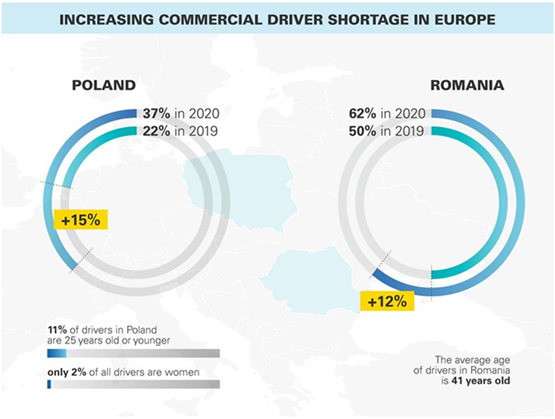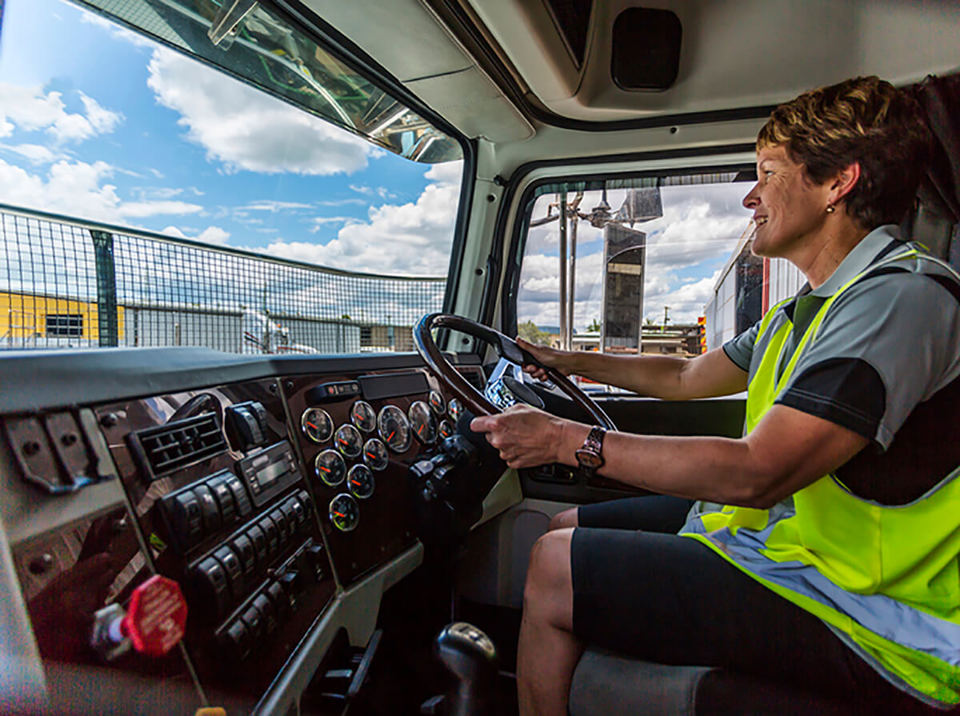According to research from IRU, the European road transport sector will face a 13% increase in driver shortage this year (2020).
In several European countries, the commercial freight driver shortage is set to rise from 23%, recorded in 2019, to 36% in 2020, according to a report by the International Road Transport Union (IRU).
The report also found that Poland and Romania are two of the most heavily impacted European countries. In Poland, driver shortage stands at 22% and is expected to increase by 15%, bringing it to 37% this year.
In Romania, the driver shortage stands at 50% and is expected to rise at 62% in 2020 - a 12% increase.
This affects the UK as multinational commercial drivers may decide to leave the UK post-Brexit, which could cause employment shortages in commercial fleets in the UK.
Poland and Romania also see the lowest rates of female drivers in Europe representing 2% of the commercial driver workforce.
Jan Buczek, president of the Association of International Road Hauliers in Poland (ZMPD), said: “To encourage more women and young people into the profession, it’s essential that improvements are made to guarantee better working conditions. There also needs to be greater state involvement in facilitating young people to become qualified drivers and help them overcome the high costs required for training and qualifications.
“It is also necessary to change transport regulations. To use the acquired qualifications, students must be able to work. However, the regulations only allow them to do so after they become 21 years old. There is a risk that before they reach this age, they will start working elsewhere and will not return to this profession.”

When it concerns young drivers, 11% of the workforce in Poland are younger than 25 years old, while in Romania, the average age of drivers is 41 years old. These figures are better than the European averages, 7% of European drivers are below 25 years old and the average age of commercial drivers is 45 in Europe.
The report says that the driver shortage remains a universal problem across Europe and beyond. Some of IRU’s actions to reduce the number of driver shortages include:
- Lowering and harmonising minimum age to become a professional driver
- Development of a joint Charter together with the European Shippers’ Council (ESC) to improve treatment of drivers at delivery sites
- Creation and funding of more and better safe and secure truck parking areas
IRU secretary general, Umberto de Pretto, said: “While we have secured successes and set important ground work, more actions, including public-private cooperation, are needed urgently, to ensure our industry continues to strive and to deliver, as the lifeblood of the global economy.”





















Login to comment
Comments
No comments have been made yet.